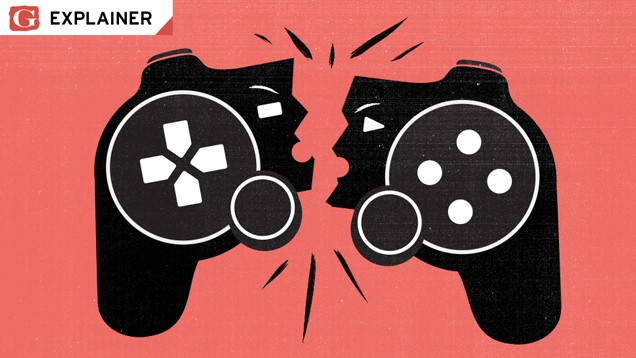What’s The History Of Harassment In Video Games?
For the past two months, I’ve been working on a series of articles on women in game development and design for the Video Game History Foundation (VGHF.)
It’s an amazing nonprofit dedicated to, yep, preserving and digitizing games, and it’s run by Frank Cifaldi, a developer and journalist whose love for the medium, and his library of it, is legion. Hence the VGHF. (And he’s been so great to work with, too. Hi Frank!)
I’ve interviewed a couple of women from the dawn of the industry here in the United States (you’ll find out who when the articles publish, promise!) They’re fiercely intelligent, inspiring, and have been incredibly generous with their stories. And they both said something that really shocked me.
With sexual harassment being a media buzzword due to the downfall of Harvey Weinstein, with #MeToo lighting up social feeds, and with GamerGate leaving a bad taste in the mouths of players everywhere, the general cultural milieu seems to be that, if you’re a woman (or POC, or LGBTQ), on a long enough timeline, you’re going to be the victim of harassment.
The best GamerGate image out there is this Gawker illo. RIP Gawker.
These two women–by all accounts trailblazers–didn’t report being harassed or assaulted. In fact, they felt like they were “one of the guys”, that they were unequivocally part of their teams, and they were listened to, respected, and made contributions they were, and are still proud of. In general, as free of scandal and victimhood as any stories could possibly be.
Reader, I was floored.
I mean, I’ve seen “Mad Men.” Several times. The dawn of computing and gaming began around “Mad Men”’s conclusion. In the course of the show, there was an insane amount of harassment, condescension, and ethically incorrect behavior directed toward its women. Yes, the show is fictitious, but it’s grounded in history and real events. And if current events show us anything, harassment hasn’t gone anywhere. Which means achieving gender equality is as much a goalpost as it was sixty years ago.
It’s hard to define when harassment begins, ends, increases, or reduces, due to the penalization many victims face when reporting events, which leads to underreporting.
So, my questions to you, the reader, are these:
- When did harassment of women, specifically in video games, really begin? Perhaps I’ll come across it in further research and interviews, but as of now, I don’t know.
- Keeping this in mind, did harassment or inhospitable work environments uptick once the games industry showed its profit-generating capability?
- Or, if not the money, was it something else?
If you’ve got info or would like to submit a comment, please feel free to do so below. If you’d like to keep your story confidential, you can DM me on Twitter, or email me: lisette.voytko@gmail.com
And if you too want the history of video games to be preserved, and to fund research like the kind I’ve been doing, VGHF has a donation page. Go do the money thing! ❤

